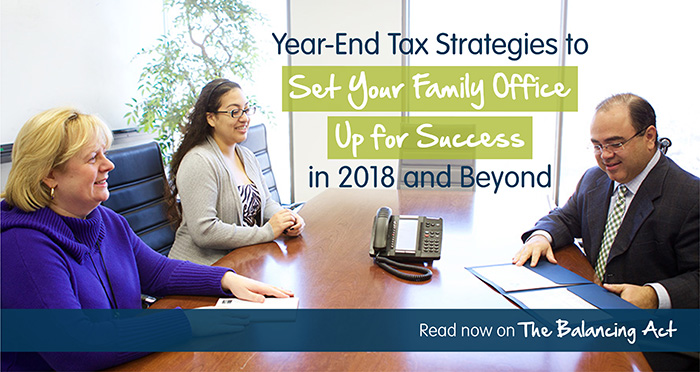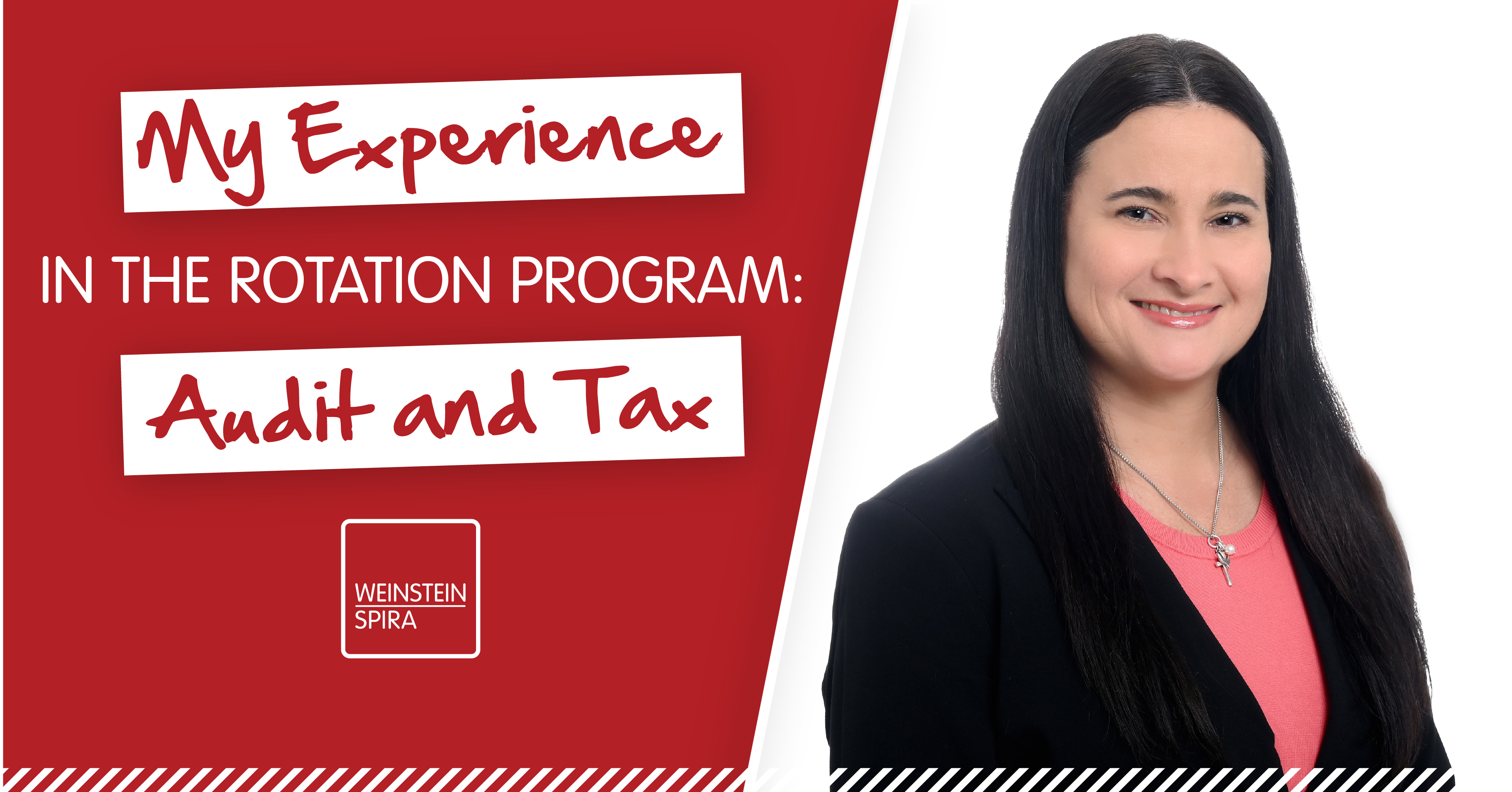Already thinking about next year’s tax deadline? Believe it or not, now may be the best time to do just that! Family office accounting can be incredibly cumbersome, as it involves coordination between various entities and individuals. In order to see successful results, this coordination should be applied throughout the year and between various taxpayers (e.g. individuals, trusts and partnerships). Fortunately, there are steps you can take now to ensure you aren’t scrambling to meet next year’s various tax deadlines, and paying unnecessary taxes, to boot.
Homer Carrillo and Amy Sbrusch offer the following strategies you can take this year and moving forward to set your family office up for success in 2018 and beyond.
1.What you can do right now: review and understand your financials, especially at year-end.
While it may seem obvious, with many family offices managing their own financials, it’s incredibly important to review and understand your financials throughout the year, and especially before the close of the year. Ideally, your family office will stay on top of and review monthly bookkeeping and track monthly statements, as it’s vital to ensure you’re looking at and understanding accurate data.
Reviewing these and then scheduling a year-end planning meeting with your advisor tends to be very productive. This meeting enables everyone to get on the same page, so together, you and your advisor can plan accordingly. To put it quite simply, if you understand and have your financials in good order, you can make more effective decisions throughout the year and at year-end and your advisor can do his or her job of reducing your tax burden. For instance, you may want to consider any number of the following strategies based on your financials and current or future legislation:
- Pay property taxes at year-end instead of in the next calendar year
- Make a charitable donation at year-end and determine what assets should be used
- Accelerate gains or take additional capital losses at year-end
- Decide if any income and/or expense items can be accelerated or deferred
2.What you can do right now and in the future: communicate with your advisors year-round.
As with reviewing, staying on top of and understanding your family office’s financial data, the more you communicate with your advisor now, and throughout the year, the better they can plan and reduce your tax burden. While it may seem like a self-explanatory recommendation, too often businesses make decisions without consulting their advisors on what the tax repercussions could be. Do you want to avoid paying unnecessary fees, fines or taxes? If so, the strategy is simple: stay in touch with your advisor year-round. This enables them to give you the best advice to decrease your tax burden.
This year-round communication extends to financial information and documentation, as well. You don’t need to wait until your advisor reaches out to you in conjunction with an upcoming deadline to share financial information, changes in your family dynamics, your family business or other pertinent information. In fact, your advisor prefers that you share big picture information as it happens, or preferably before it happens. The same goes for any other information that may be pertinent to share. They’ll keep everything organized when it comes time to file, meaning one less thing for you to do while also keeping them informed and lessening the potential for oversights.
While the above tactics are easy steps to take to ensure next year is a successful one, these are steps you can take on an ongoing basis to ensure the same success year after year. It’s important to understand your financials by staying on top of your books on a monthly or quarterly basis. It’s helpful not only to brush up on this at year-end, but stay on top of it, and communicate with your advisor in the moment moving forward. A quality accountant should utilize a partnership approach, and if you begin including them in the conversation as a partner moving forward, you’ll certainly benefit.
The good news: staying on top of your financials and engaging in consistent dialogue with your advisor could mean money and time saved. You’d prefer to use that tax money for a family office vacation anyway, right?



